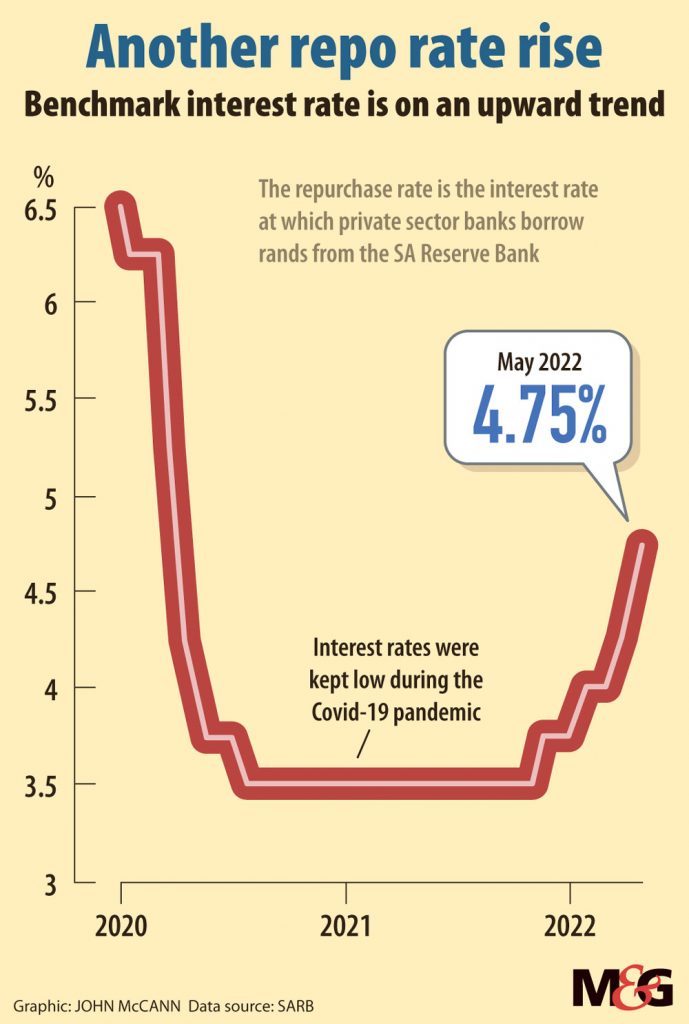Governor of South Africa' Reserve Bank, Lesetja Kganyago says Economic and financial conditions are expected to remain more volatile for the foreseeable future. (ADRIAN DENNIS/AFP via Getty Images)
The South African Reserve Bank’s (Sarb) monetary policy committee hiked interest rates by 50 basis points to 4.75% on Thursday, the fourth consecutive increase at its once-every-two months meetings.
Announcing the decision, Lesetja Kganyago, the bank’s governor said in the near-term, headline inflation had increased well above the mid-point of the Sarb’s 3-6% target band, and was forecast to breach the target range in the second quarter.
“Against this backdrop, the MPC decided to increase the repurchase rate by 50 basis
points to 4.75% per year, with effect from the 20 of May 2022,” he said in his speech, a copy of which was posted on the central bank’s website.
“Economic and financial conditions are expected to remain more volatile for the foreseeable future. In this uncertain environment, policy decisions will continue to be data dependent and sensitive to the balance of risks to the outlook. The MPC will seek to look through temporary price shocks and focus on potential second round effects and the risks of de-anchoring inflation expectations.”

Four members of the committee preferred the 50 basis point rise, while one wanted a more moderate 25 basis point increase.
Going into this weeks’s monetary policy meeting, economic analysts expected the central bank to increase the pace of its interest rate hiking cycle. The rate hike comes a day after Statistics South Africa said annual consumer inflation remained at 5.9% in April, unchanged from March.
The last time that headline inflation was above the target range was in 2017, when the CPI was 6.1% in March of that year.
South Africa is not the only nation grappling with rising inflation in the fallout from the Covid-19 pandemic. Russia’s ongoing attack on Ukraine has added to price pressures, with oil shocks and disruption in the supply chain of key products such as wheat.
Another threat in international markets that has emerged is a Covid-19 lockdown in China. Shanghai was put under lockdown in March, after the financial hub faced an upsurge in infections.
Anathi Madubela is an Adamela Trust business reporter at the M&G.